Bollywood, Are You Watching? Bihar's Daughters Are Coding
In India’s cities, something remarkable is unfolding. Urban female labor force participation has climbed from 20% to 25%.
This rise, from an initial low, stems from what I call “the Honour-Income Trade-Off”: male honour is intrinsically tied to female seclusion, but when urban growth creates high-paying jobs, rising salaries begin to compensate for men's perceived loss of honour. Moreover, as more women work in prospering cities, what was once stigmatised becomes normalised. Families see their neighbours' daughters working in IT firms and banks, and thriving.
Arvind Subramanian, India’s former Chief Economic Advisor, argues that accelerating female employment is crucial for India’s structural transformation
But how can this happen at massive scale? The answer might lie in an unexpected place - Bollywood. At 4am, my phone buzzed with a message from Bihar that would show me how...
The Honour-Income Trade-Off in Bihar
Amit: Hi Dr. Evans! I run a coding academy in Bihar. The honour-income tradeoff is one of the most useful concepts I've encountered to describe the kinds of decisions I see families making...
Amit: We're seeing day labourers' daughters becoming software engineers in Gurgaon. Starting salaries Rs. 20-25k/month, with ~20% growth/year.
Me: How big is the intergenerational pay difference?
Amit: Huge... family income for a family of 5-6 is something like Rs. 10,000/month. The girls earn starting salaries of 20,000-25,000, of which, even if staying in a city, they send about 30% home.
Now here's what really caught my attention:
Amit: There's a second phenomenon I've observed. It's something like honour-income tradeoff but at a group level. To give an example, there's a driver who worked with us... he specifically told one family not to send their daughters to our organization out of fear they would be ‘corrupted’. But after one of the girls got a job as a software engineer in Gurgaon, the driver sent his daughter to our School of Programming as well. There are similar stories in which an entire neighborhood may have opposed a family for sending their girls to our training programs... and then as many as 8-10 of those families then ask how they can send their daughters as well.
‘Good Girls’ are Changing
Most remarkably, these families are even allowing their daughters to remain unmarried into their late twenties - something that would historically be a source of deep shame. As Amit explained, Hindu families are increasingly relaxed about delayed marriage when their daughters earn good salaries.
Why?
Perhaps marriage would mean losing that crucial income stream - married women typically cannot send money to their birth families, as this becomes stigmatised. When a daughter earns Rs. 25,000 and sends 30% home, they all prosper. Meanwhile, she enjoys newfound freedoms, mixes more widely, and perhaps even finds a loving husband.
Amit: Another girl (Hindu) fell in love with a boy who went through a similar program ... Similar caste and class backgrounds, but the boy no longer holds very strong patriarchal views. They married when the girl was ~26. They seem happy.
Accelerating Social Change
Yet change remains uneven. In some communities, especially where religious authorities are still seriously influential, families are intensely worried about shame, so they closely police their daughters to prevent any rumour of impropriety. Families forgo earnings to maintain status and social inclusion.
Amit told me stories about families wrestling with these decisions, about Hindu girls staying unmarried until 27 because their earnings give them such status, about the delicate negotiations between tradition and opportunity - I had an idea.
The Power of Bollywood
Typically, NGOs try to motivate cultural change through small-scale interventions - ‘awareness raising’ sessions, featuring ‘role models’. But in a country of 1.4 billion that’s rather small fry. My approach would be more structural.
My globally comparative research suggests that charismatic storytelling can reshape expectations about what is possible and prestigious.
Bollywood has unique power to shift expectations at scale. Not just through reach, but through its ability to create emotionally gripping, immersive experiences. When we gasp as the driver who once warned families about ‘corruption’ enrols his own daughter in coding classes, when we see a father’s light up with pride as his daughter’s first salary transforms their home, when we see an entire neighbourhood shift from opposition to aspiration - we’re not just watching a story, we’re living it.
From Chulha-Girl to Gurgaon Coder
Picture this: A Bhavika in Bihar stirs a pot of broken rice on a mud chulha, the smoke stinging her eyes. Since losing her mother to COVID, she's become the family's backbone—cooking, cleaning, caring for everyone, all while trying to keep up with her studies. But Bhavika has a gift - one her cousin recognises. When they learn of a coding academy in town, hope flickers. Her father, a man who's never owned more than three pairs of clothes, eventually relents. Escorting both girls to town, he nervously gives a downpayment. 18 months of training, he breathes deeply. It means no repairs for their leaking roof. Every rupee goes to Bhavika's training.
“Your sister's running wild in town now? What next—she'll bring home a boyfriend?” - her brother is mercilessly mocked. Friends are saying he's a failure, can't protect his family's honour. At night, he sees how hard Bhavika works. Truly, he admires her determination. But their taunts really sting. He worries too, what if something happens?
At the residential academy, Bhavika and her cousin sit together late into the night, staring helplessly at their failing code. But they keep at it, night after night, puzzling it out together. Tech isn’t the only struggle - she misses home too, and worries about how they're managing without her help.
It's not all misery! Actually, they have rather good fun. Back home, in their village, ‘Good girls’ (achchhi ladkiyaan) are supposed to be quiet and subdued. “Eyes, down, speak slowly” (ankhain neecha aur awaz dheera). “It’s a mark of culture or refinement” remind the aunties, especially with men around. And there’s always some uncle or cousin in the house. But at the academy? They joke, tease, cook together and help each other out, supporting each other as trusted friends.
With grit, brilliance, and friendship, they land jobs in Gurgaon! The journey to Delhi proves daunting - imagine a railway carriage meant for 60 passengers packed three times over, almost all men. But when Bhavika thinks about her new salary - double what her brother and father earn combined - she finds her courage.
When that first payment hits her smartphone, Bhavika transfers a third of it back with triumph! The transformation begins immediately. They replace their old mud walls with brick ones, install a gas stove, make repairs they've long postponed. Every time her father completes a new project with her money, the photos flood their WhatsApp group. Her brother proudly shows everyone - “See what Bhavika did?” Those friends who used to mock him? Now they’re asking how their sisters can join the academy. She hasn’t just changed her own future - Bhavika’s lifted her whole family.
Bollywood knows social mobility - Super 30's IIT strivers, 12th Fail’s UPSC dreamers. But a whole new story remains untold. Girls from villages are becoming software engineers, moving from mud homes to tech offices, from broken rice to team lunches. This isn't just one success story - it's happening in thousands of homes, right now. If Bollywood captured these stories, it could accelerate exactly what Arvind Subramanian calls for: India's structural transformation through female employment.
Don’t let the Perfect be the Enemy of the Good!
Each society has a unique cultural inheritance, a spectrum of permissibility, with progressives and conservatives tugging at either end. Culture is malleable, and there’s plenty of scope for ideological persuasion. But push too far, speak only to a tiny minority, while alienating the majority, that elastic band snaps.
As part of the Honour-Income Trade-Off, families are deeply concerned about risks of impropriety, rumours and shame. Films about girls getting jobs in Gurgaon then going ‘avara’ (wandering) and getting pregnant would likely amplify anxieties. Conservatives might even cite it as evidence of danger.
Charismatic storytelling is most appealing if it resonates with a community’s core values. The most compelling narrative would show how female employment can enhance, rather than replace, traditional sources of status.
This same dilemma holds for progressives worldwide.
Bollywood Could Accelerate Bihar's Transformation
This is Bihar's quiet revolution, and it needs its big screen moment. Right now, thousands of Bihari girls are making this journey from chulha to coding. Bollywood could help millions more by celebrating their successes
P.s. thank you to Amit and all my wonderful friends in Bihar!



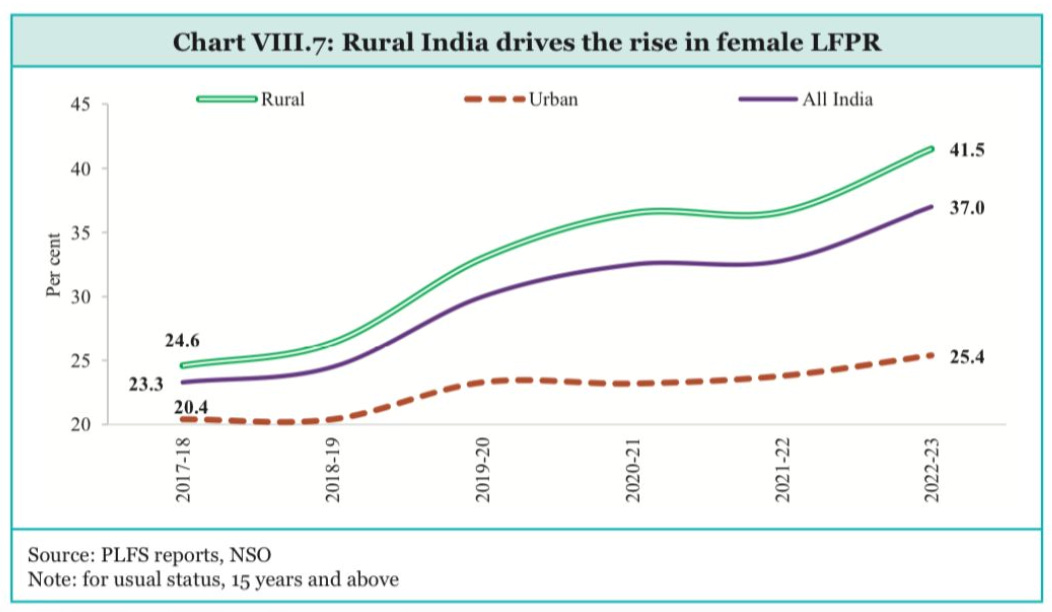

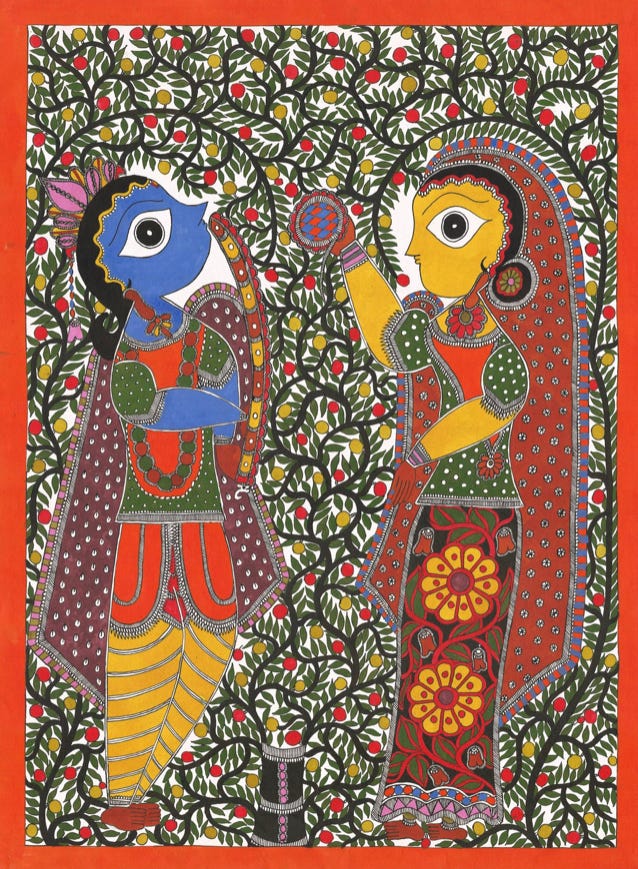


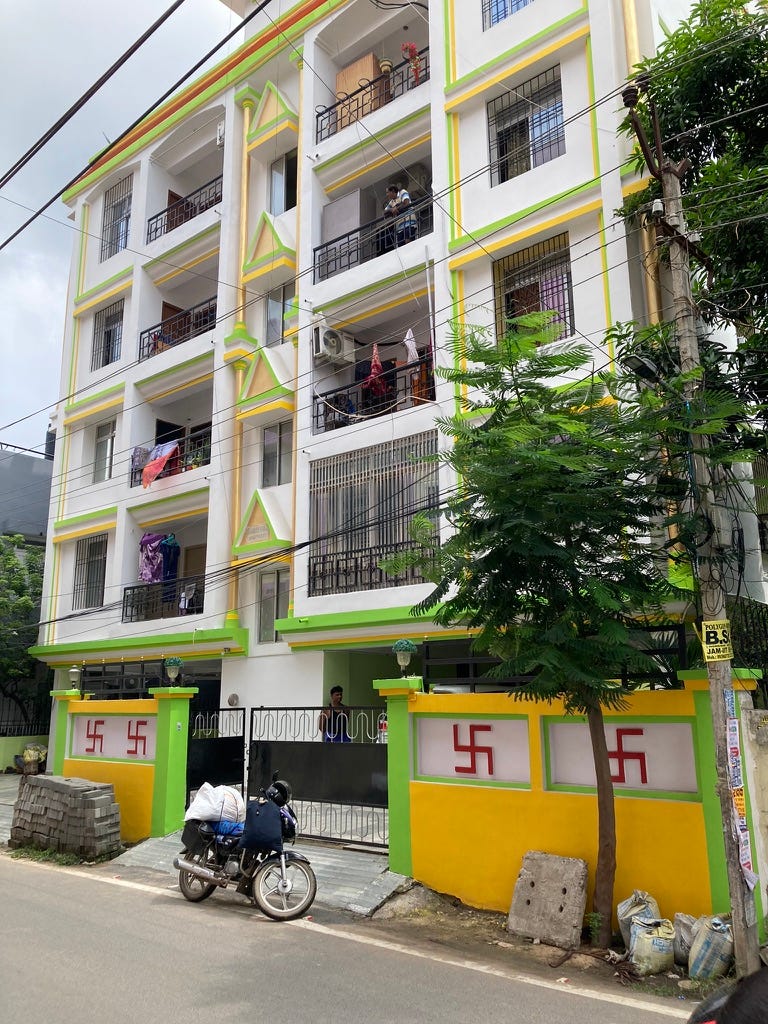
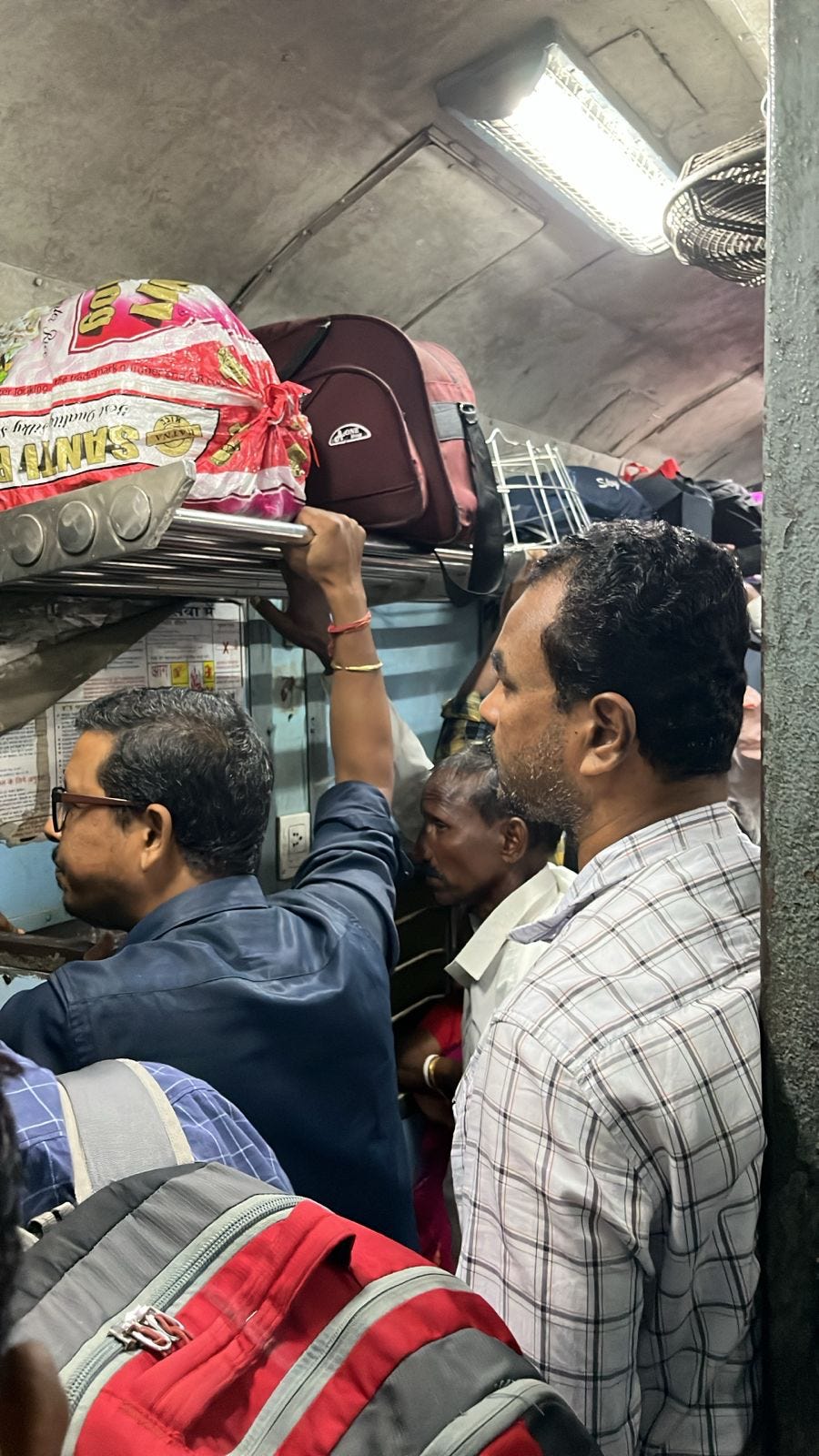


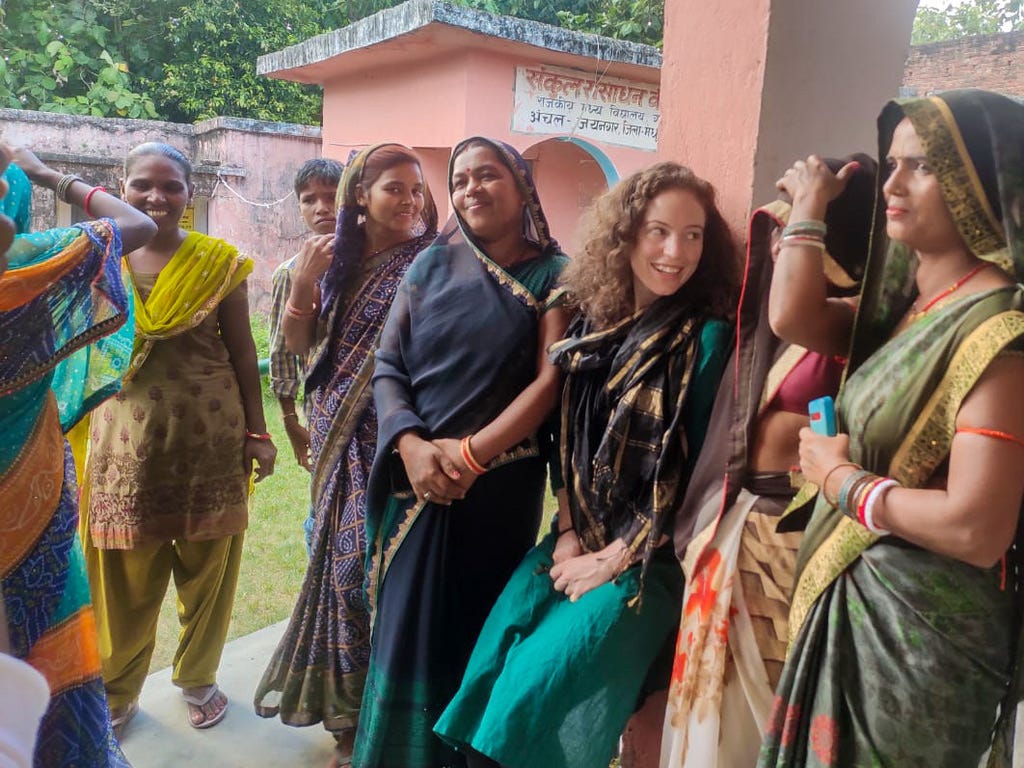

Hi. Have you seen Lapata Ladies ? Have a look. It’s something that you are looking for. Loved reading your essay. Thanks.
Thanks Alice, great article and I hope you enjoyed your trip. My family is from Bihar and although now resident in London, we have a farm in northern Bihar and it is fascinating to see the changes that are taking place every visit, although there is still so much to do. The rising female empowerment in this part of India will hopefully not only reduce poverty, but also the massive gender imbalances that occur with regards to things like access to education, jobs and even inheritance:
https://amito.substack.com/p/female-empowerment-coming-to-save?r=11ovd6